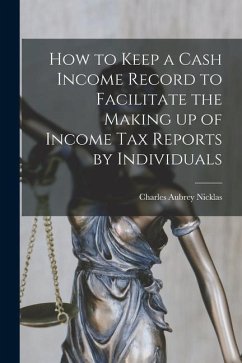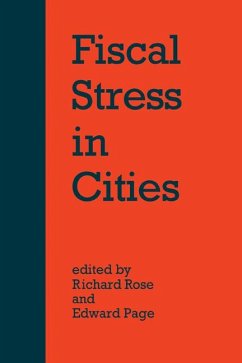Nicht lieferbar

Why Tax Systems Differ: A Comparative Study of the Political Economy of Taxation
Versandkostenfrei!
Nicht lieferbar
This book analyses and compares taxation in different countries. It looks at what tax systems have in common, how they differ and seeks to explain the the similarities and the differences. No attempt is made to confine the analysis on each topic to the same group of countries. Whilst the emphasis is on the larger advanced countries, countries are drawn on from all round the world according to the nature of the topic and the data available. The book seeks to answer questions such as: Why do developing countries rely heavily on indirect taxes? Why is income tax the dominant tax in advanced count...
This book analyses and compares taxation in different countries. It looks at what tax systems have in common, how they differ and seeks to explain the the similarities and the differences. No attempt is made to confine the analysis on each topic to the same group of countries. Whilst the emphasis is on the larger advanced countries, countries are drawn on from all round the world according to the nature of the topic and the data available. The book seeks to answer questions such as: Why do developing countries rely heavily on indirect taxes? Why is income tax the dominant tax in advanced countries? Why is the property tax the most widely used tax in local government? Why do some countries have more tax expenditures than others? Why has VAT become the dominant sales tax world-wide? Why do less than half OECD countries have annual wealth taxes? Why are there so many differences in the way countries tax corporate income and capital gains? What are the keys to success in tax reform? And many more. In seeking to answer these questions the author draws on economic theory but also recognises the significance of historical, legal and social differences, the importance of constitutional constraints, the influence of geography and globalisation and the often decisive role played by the convictions and whims of politicians.





![A new Income tax Manual [electronic Resource]: Explaining the Requirements of the Federal Income tax law and the Treasury Department Regulations With Cover A new Income tax Manual [electronic Resource]: Explaining the Requirements of the Federal Income tax law and the Treasury Department Regulations With](https://bilder.buecher.de/produkte/68/68813/68813208n.jpg)







